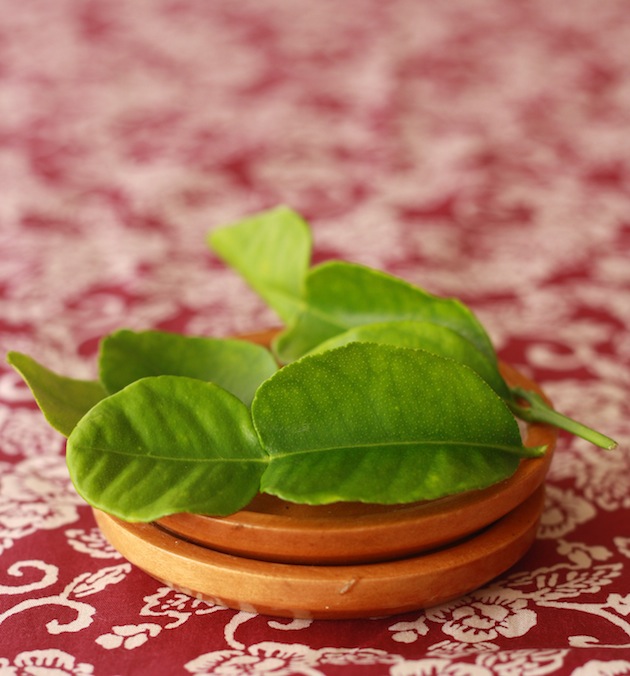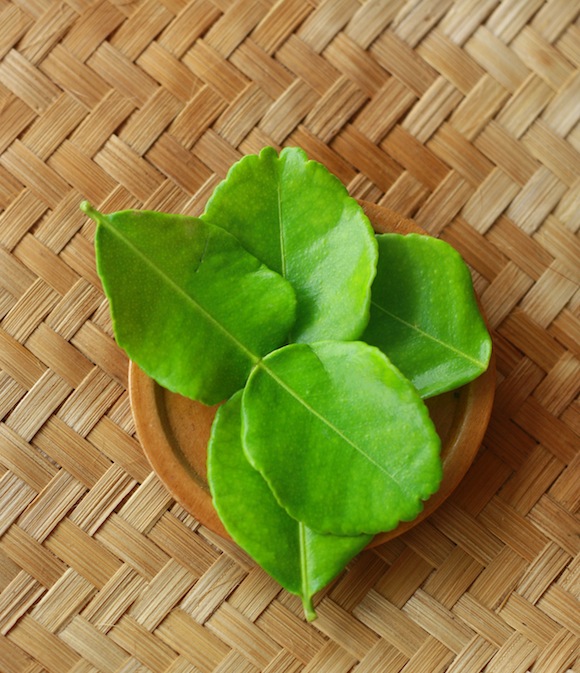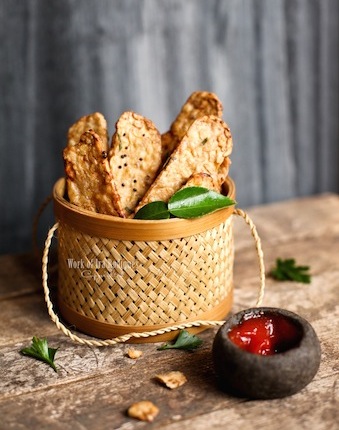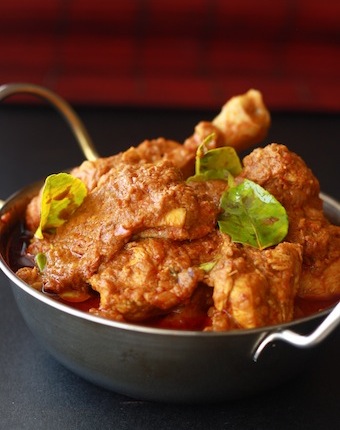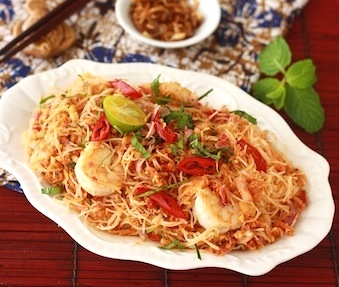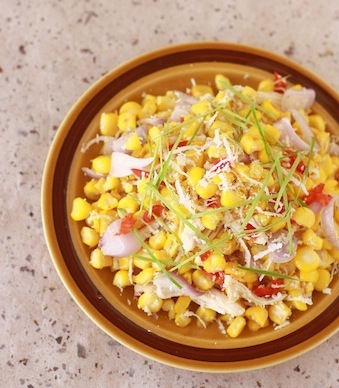It must be the short, thick, needlepoint thorns on the kaffir lime tree that allude to its secret - that the tree is willing to forgo its fruit, but not its valuable leaves.
The round, green, wrinkly kaffir lime fruit is used for cooking - especially the zest with its intense, citrusy flavor - but it is the Kaffir Lime Leaf which is most sought after. The glossy, emerald-green leaf with its hourglass shape is a key spice in many Southeast Asian dishes. Crush one of the segmented leaves in your hand and you’ll quickly realize why.
The kaffir lime leaf holds a wonderfully fragrant essential oil reminiscent of lemon & lime, but with a distinctly warm, sweet, and refreshing aroma. It is a popular herb in aromatherapy, massaged in for skin regeneration and to increase blood circulation, as well as commonly added into a bath or into a potpourri to relax away any tension and rejuvenate you. The same effect you’ll experience when you’re in the kitchen, slicing the leaf into slivers or pounding it into a paste.
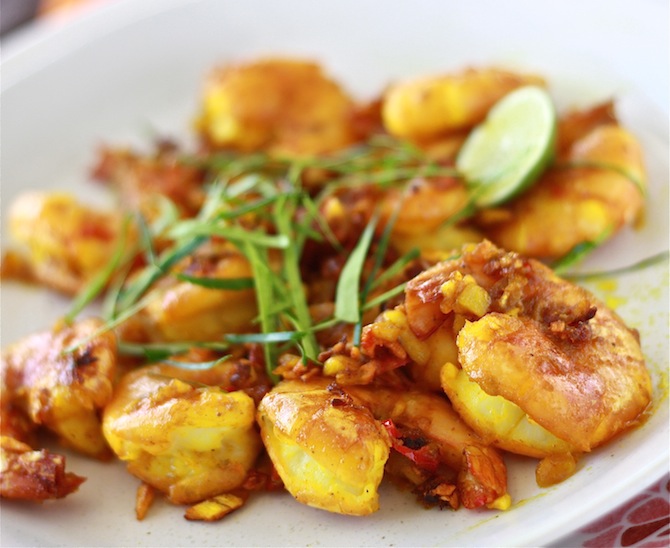
The sweet, floral, citrus aroma and flavor of kaffir lime leaves perks up a multitude of Southeast Asian dishes. Pounded kaffir lime leaves in Thai, Lao, and Cambodian curry pastes, and in Indonesian beef rendang. Whole kaffir lime leaves in spicy Thai tom yam soup, and sliced thinly in Malaysian kerabu salads or over turmeric prawns. And sometimes, as easy as tossing in a couple of leaves to cook with the rice.
But don’t limit your use of kaffir limes to Southeast Asian cuisine. The dynamic herb enhances the flavor of salads and dressings, and can give an instant tanginess to bland soups. Kaffir lime leaves also complement spicy food, so try it out in your favorite Mexican dish!
Kaffir lime leaves have a distinct flavor that can’t easily be substituted, so best to always have them in the kitchen. Luckily, fresh kaffir lime leaves are becoming more available, and they freeze well. Just place the fresh leaves in an airtight container in your freezer, and take them out as needed.
Read more about this series - "Explore Southeast Asian Spices & Herbs"
Read more about this series - "Explore Southeast Asian Spices & Herbs"
{Note: “Kaffir” is considered a derogatory term in some countries, so the name of the leaf varies widely. Kaffir lime leaves may also be called: Thai lime leaves, makroot leaf, makrut lime leaf, Asian lime leaves, daun jeruk purut, daun limau purut, wild lime leaves, bai makrut, Indonesian lime leaves..or just simply “lime leaf”.}
For a taste of Kaffir Lime Leaves, try one of these excellent recipes:
|
|
|
|
|
|

